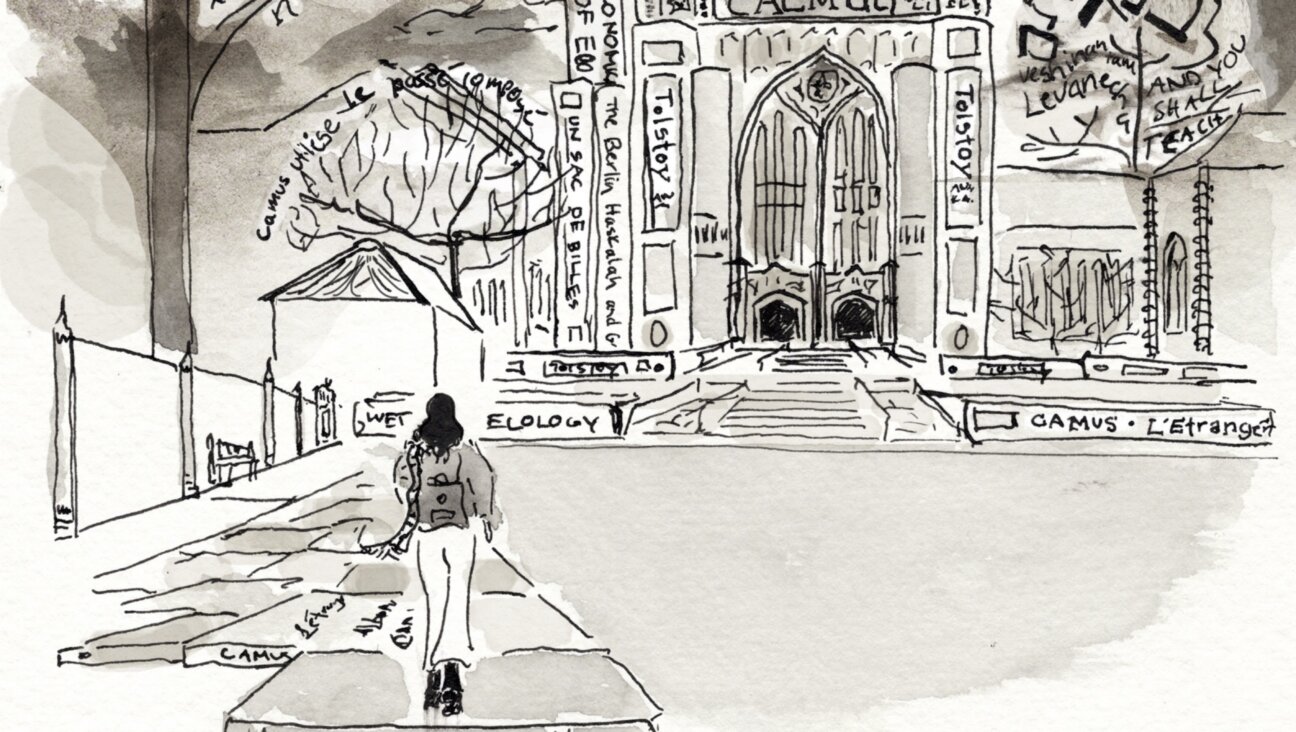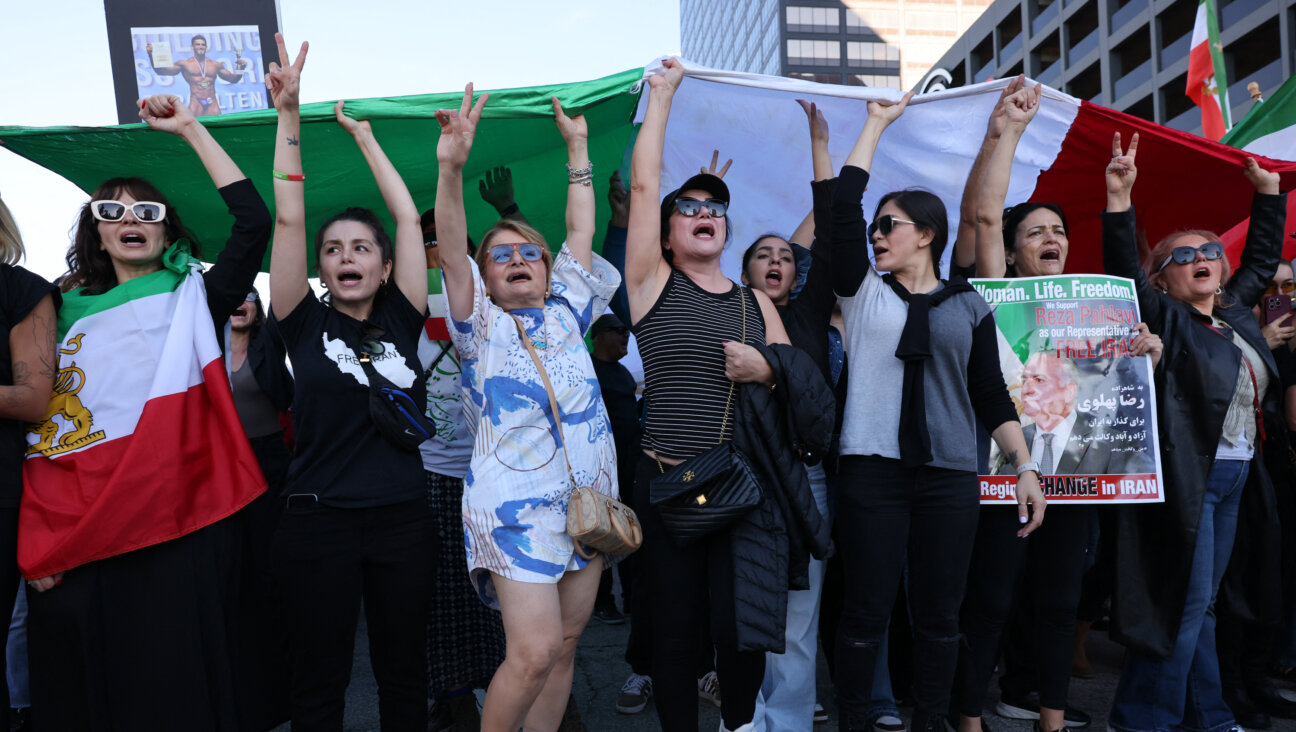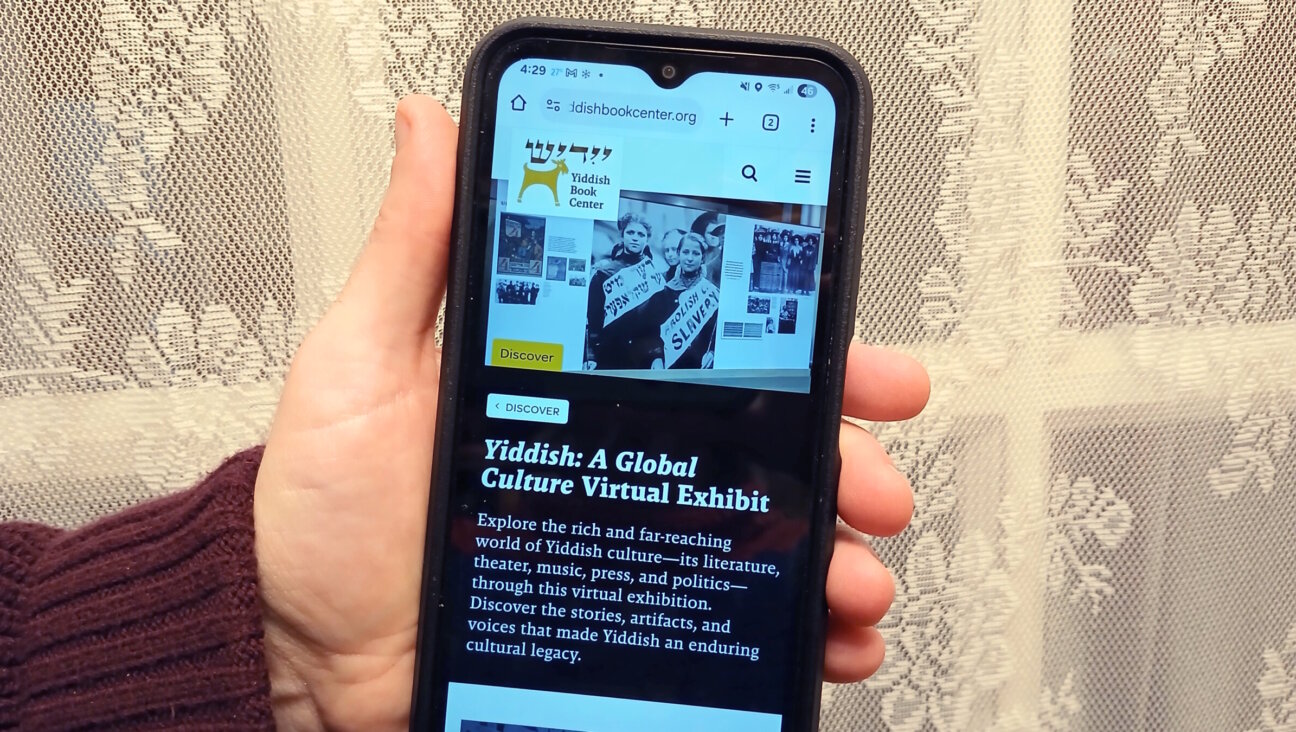Arab Street: We’re Bushed
Two editorial cartoons this week summed up Arab feelings about the re-election of President Bush. The London-based Saudi daily Asharq Al Awsat’s cartoonist drew Uncle Sam carrying a sign displaying Bush’s motto of the past four years, “With Us, Or Against Us”; alongside the image, a second frame offers the American president’s ultimatum for the next four years: “With Us… Or With Us.”
Gulf News, the United Arab Emirates daily, was far blunter in its cartoon. It personified the United States in Nazi uniform, marching in goose-step with an arm outstretched in a stiff Nazi salute. Across the cartoon rendering of America were the words “Bush II.”
Tough views, to be sure, but ones widely shared in the Arab world. A senior Cabinet official in a Persian Gulf country very friendly to the United States remarked that the latter cartoon “went too far” — but when prodded further, he admitted that his “inner self” shares widespread visceral hatred of Bush and his policies but his “official self” has little choice but to kowtow to the government line.
This divide, however, is shrinking. At some point in the not so distant future, governments in the Middle East will have to choose between joining the street and perishing under its sway.
Increasingly, even dictatorial Arab and Muslim leaders have been forced to take into account public opinion, which poll after poll shows the United States as being by far the most hated country (after Israel). This is the case even among America’s closest allies, including Turkey, Pakistan, Saudi Arabia and Egypt. From pundits to taxi drivers, it seems certain that another four years of the same policies are sure to anchor that hostility.
For Arabs and Muslims, the laundry list of disagreements is long and getting longer.
It begins with a total rejection of American policy toward the Palestinians, a policy that is seen as one-sided and insensitive to their most basic human rights. One frequently heard complaint is that even though Arab Americans number at least 3 to 4 million, there is not even a single senior Arab American policymaker involved in shaping Washington’s position on the Israeli-Palestinian issue.
Beyond the Arab-Israeli conflict, many Arabs take issue with the whole gamut of Bush’s unilateralist policies, with his embrace of unrepresentative governments, with his occupation of Iraq and with the diatribes against Islam regularly uttered by the administration’s Evangelical Christian and neoconservative allies. It is telling that the USA Patriot Act is viewed as deliberately targeting Arabs and Muslims. Rightly or wrongly, the Bush administration is regarded as being profoundly racist against Muslims.
Then there is the irrationality of it all. Here in the Arab world, many people wonder why, for example, Iran is considered a rogue state but Libya is seen as an ally. Muammar Gadhafi has ordered the murder of hundreds of Americans and French citizens, not to mention thousands of his fellow Libyans.
Why have sanctions against Libya been lifted, yet still applied to Iran and Syria? Why is a military dictator in Pakistan okay, but not one in Syria? Surely, any taxi driver will tell you, it is not a matter of principle. Bush’s answers are disappointing to many Arabs, as they do not square with his talk of spreading democratic values.
Perhaps most importantly, there is a conviction in the region that the Bush administration is run by neoconservatives who view instability as a policy. To be sure, one side of the Arab street actually supports a muscular Washington, as it puts pressure on dictatorial rulers to reform. But Bush’s appeal to democracy has been consistently diluted by the perception that its aim is solely to serve American interests, rather than those of ordinary Arabs or Muslims. Iraq’s Iyad Allawi, Pakistan’s Pervez Musharraf and Afghanistan’s Hamid Karzai are all seen as American puppets — not exactly the choice of the people.
Most Americans are probably not too concerned with winning a popularity contest in the Arab world, but increasingly there are signs that the Bush administration’s policies are also hurting American economic interests.
Last week, Chinese oil giant Sinopec Group announced with considerable fanfare a historic $70 billion oil and natural-gas agreement with Iran, China’s biggest energy deal in the oil-rich Persian Gulf region. American oil companies, by contrast, are banned by sanctions from doing business with Tehran. This past summer, Chinese, Russian, Spanish, French and Italian oil companies signed natural-gas agreements with Saudi Arabia; American companies were nowhere to be found.
Nearly 90% of the oil now being produced in the Persian Gulf region flows to Asia. Even Saudi Arabia, which has been partially subsidizing tiny oil shipments to the United States to retain its strategic relationship with Washington, is scaling back those shipments. Oil prices have risen to more than $50 a barrel because none of the Arab and Muslim oil producers feels the need to alleviate the pressure on the United States and its Western allies.
With American consumers clearly feeling the crunch, the second Bush administration can be expected to continue using force as a way to secure cheap oil, even though the misadventure in Iraq has proved that power has cost the world the near total loss of Iraqi oil exports. But looming just over the horizon is the ultimate financial casus belli: the abandonment by OPEC of the American dollar as the currency for pricing oil, a move that would deal the greenback — and the already faltering American economy — a heart attack.
What economists and financial analysts call a “correction movement,” a major policy revision, is very much in order. Instead, an emboldened Bush administration is promising not only more of the same, but also a “purer” version of the neoconservatism that already has made the United States an international pariah. God help us, indeed.
Youssef Ibrahim is managing director of the Dubai-based Strategic Investment Energy Group, a political risk consultancy. He is a former senior Middle East correspondent for The New York Times, energy editor of the Wall Street Journal and senior fellow for Middle East affairs at the Council on Foreign Relations.















